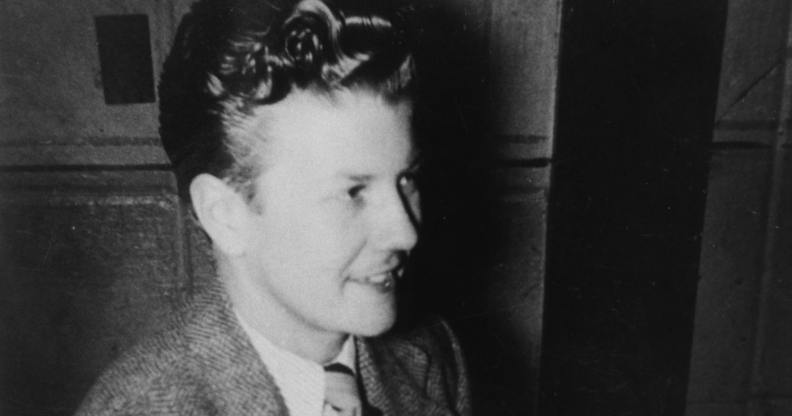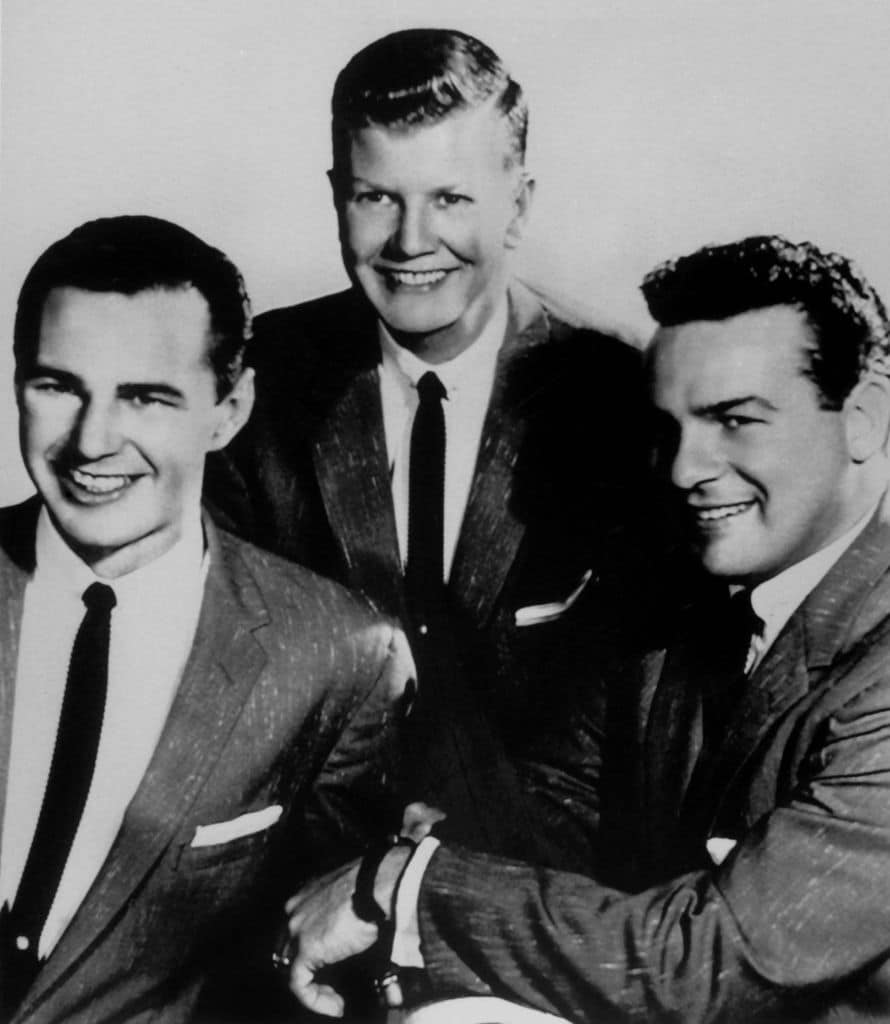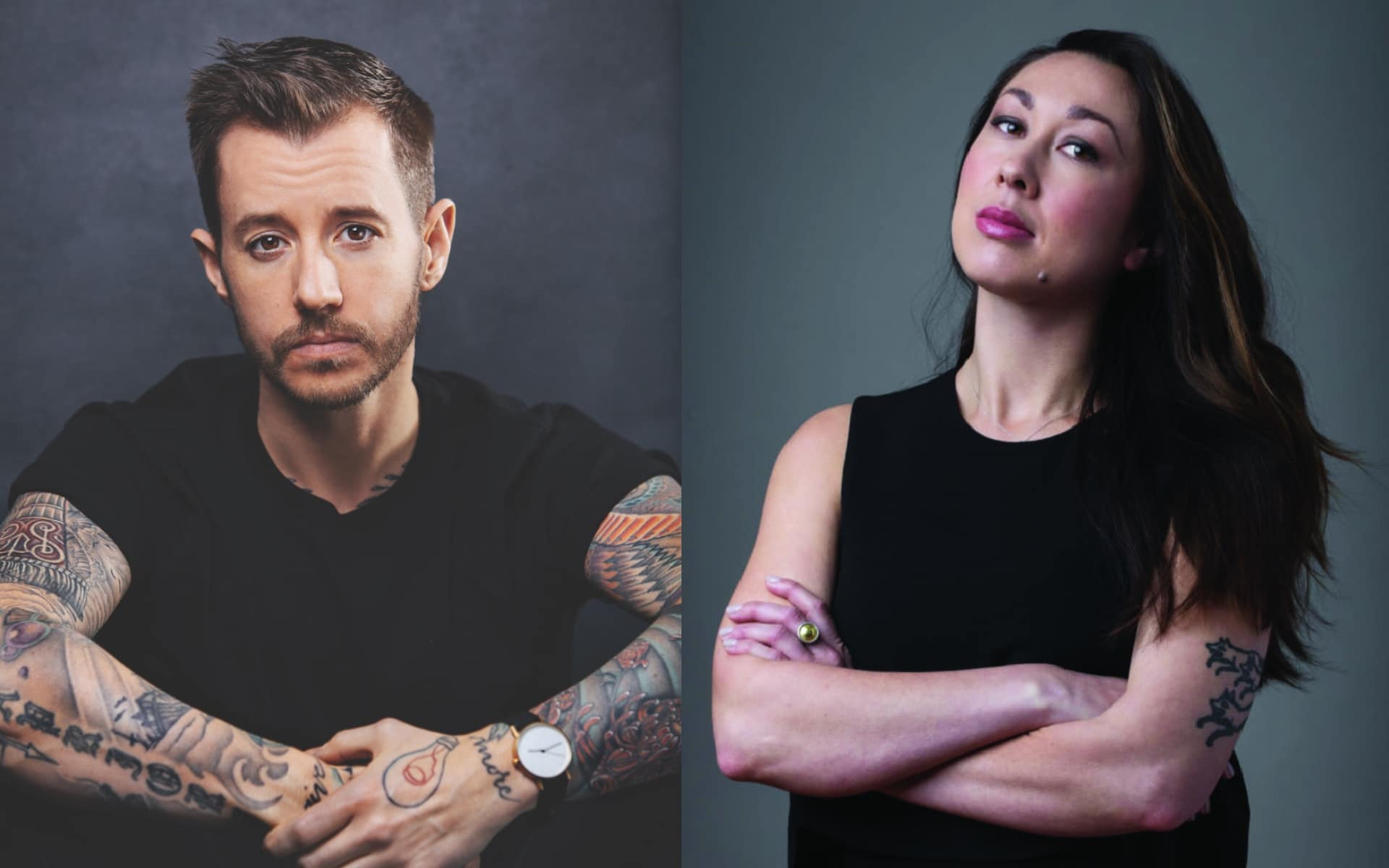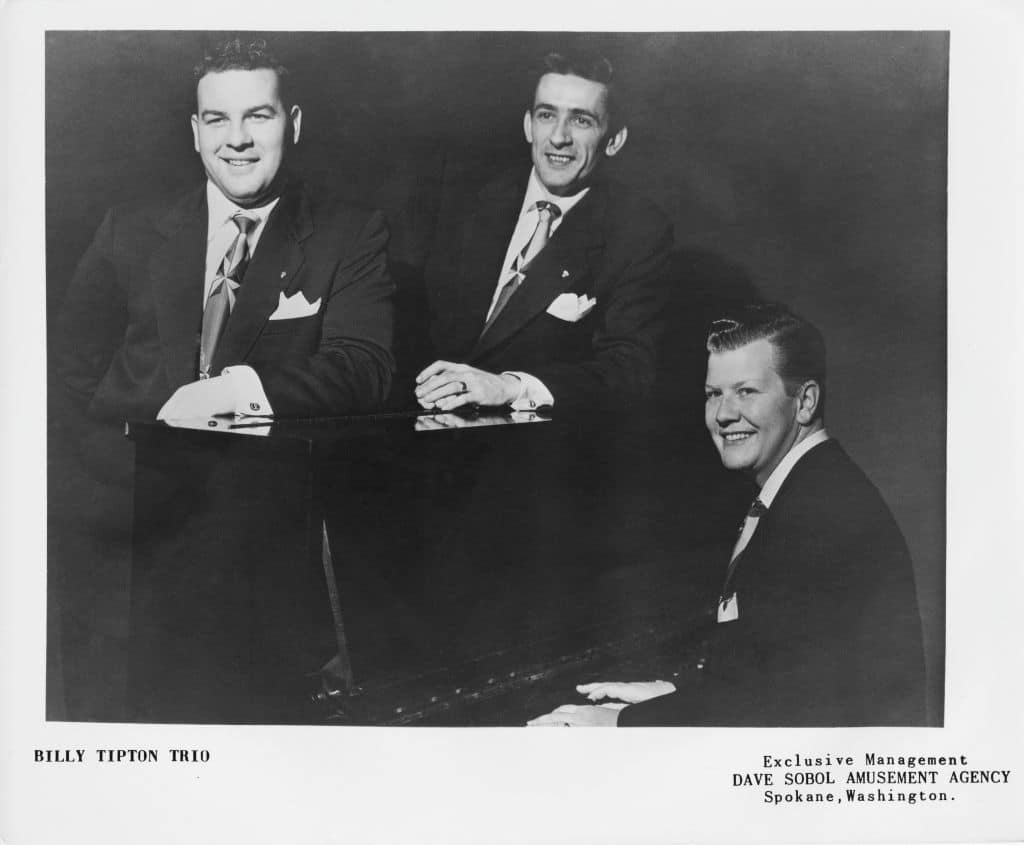This jazz icon was outed as trans after his death – and became a hero to an entire community

Billy Tipton. (Provided)
A stirring new film, No Ordinary Man, examines the life and legacy of Billy Tipton, the jazz musician outed as trans after his death in the late ’80s.
In some regards, Billy Tipton was just an ordinary guy.
A musician, he recorded two albums of jazz standards as part of the Billy Tipton Trio in the 1950s before retiring in the late 1970s due to arthritis. He died in 1989, aged 79, after living a long and fruitful life.
It wasn’t until Billy Tipton died that he became a tabloid spectacle when it emerged that he was trans – a fact his wife and three adopted children never knew about him.
A media circus followed. Billy was mocked and misgendered while his family underwent the cruelty of the American talkshow circuit. The fiasco culminated in a biography written by Diane Middlebook, which misgendered and cruelly positioned Billy as a cunning cisgender woman who lived as a man in an effort to build a successful jazz career.
But trans people knew the truth. Many saw themselves in his story, and many related to his struggle to be seen and loved for who he really was.
More than 30 years on, Billy’s legacy has been reappraised through trans eyes. No Ordinary Man is a searing, heartfelt documentary exploring the life of a man who was brutalised by a cruel media in death, but whose life was full and multi-faceted.

The Billy Tipton Trio (Billy in center) pose for a publicity shot jn Spokane, Washington, USA, circa 1960. (Michael Ochs Archives/Getty)
The documentary, directed by Aisling Chin-Yee and Chase Joynt, also examines the impact he has had on trans, non-binary and gender non-conforming people.
Joynt “didn’t really know much more than the very succinct summary” of Billy’s life before he heard that there was a documentary in the works. However, he was eager to help tell the extraordinary story of a trailblazing jazz musician who lived life on his own terms at a time when doing so was far from easy.
“Really, we came to know him as he was being outed on the talkshow and tabloid circuit as having been assigned female at birth,” Joynt tells PinkNews, “and it wasn’t really until collaborating with Aisling and Amos [Mac] and Sarah [Spring] and the No Ordinary Man team that we really got to spend time in the complexity and nuance of his story.”
Chin-Yee first heard about Billy Tipton when producer Sarah Spring mentioned the idea of doing a documentary about his life. “I went on the internet, checked Wikipedia and whatever else was available, and it was the story that was presented in the ’90s, that he was a deceiving woman doing this for a job,” she says.
The team began to delve into archival material, rifling through talkshow footage and tabloid interviews to learn more about the way Billy was treated following his death. What they unearthed was degrading, sensational, and often cruel.
“I think that it is a well-known, well-worn narrative that trans people are the subjects of a kind of violent curiosity in and by and through the media,” Joynt says. “We feel lucky to be a project that is thinking about that talkshow footage in new ways. And what I mean by that is, I’m not sure what we gain by reproducing the kind of violent spectacle that the talkshow produces. Instead, what we get in our film is a chance to look at everybody else, not the trans person. So we look at Billy’s family and see what is forced into view through their interrogation. We get to look at the apparatus of the talkshow.”

No Ordinary Man directors Chase Joynt and Aisling Chin-Yee. (Photos by Tanja Tiziana and Samuel Engelking)
Chin-Yee says they had a “ton” of archival footage from talkshows, but they were very selective in what they used.
“It needed to do some work,” she says. “It wasn’t just to reproduce these awful, violent moments from the past.”
Billy Tipton’s son is the ‘protector’ of his father’s legacy
As well as looking back at the talkshow circuit through a critical lens, Joynt and Chin-Yee also spent a significant amount of time with Billy Jr, one of Tipton’s adopted sons. Billy Jr spent time on the talkshow circuit following his father’s death, where he spoke eloquently and movingly about the family’s experience.
“When we started, [Billy Jr] was rightfully a little bit suspicious about who we were and why we were going to be approaching his father’s story, because he endured the violence of the talkshow circuit,” Joynt says.
“He identifies himself as the protector of his father’s legacy. And so it was only through a number of days and ongoing conversions that I think he was able to see that we were a team that was approaching his father’s story in a new way, and that we were really trying to honour him and to think about how his father exists as a kind of hero, and as someone who lived a life at a time when he didn’t have access to resources and the kind of community that many trans people might identify today.
“It was a really touching and moving experience for our team to be able to spend time and to be able to be welcomed into his life in that way.”
Over the few days that we spent with him, it became clear that he didn’t know that there was a community that his father was a legend and an icon in.
There is an incredibly moving moment in No Ordinary Man when Billy Jr learns that his father was not alone and that there are other trans-masculine people out there.
“Over the few days that we spent with him, it became clear that he didn’t know that there was a community that his father was a legend and an icon in. He hadn’t had that kind of exposure,” Chin-Yee says.
In making their documentary, Chin-Yee and Joynt knew they had to confront the issue of Diane Middlebrook. An acclaimed biographer and poet, Middlebrook’s book about Billy had a very clear agenda.
“She wouldn’t recognises her own blind spots,” Chin-Yee says. “As Stephan Pennington, the musicologist in the film says, she didn’t put herself in the shoes of Billy. She put herself in the shoes of Kitty.
“It was always in relation to what the wives were feeling or what the family was feeling. Clearly, this was a massive secret that he was hiding – or she could have just believed that he was telling the truth.”

The Billy Tipton Trio (Billy at right) poses for a publicity shot circa 1955 in Spokane, Washington. (Michael Ochs Archives/Getty)
The Tipton family wanted to have a book that showed Billy was “a decent person” and “a good father”, Chin-Yee says. “And it was sort of wrapped into this transphobic text… It was very clear that she had an agenda about what she thought Billy was trying to do.”
Joynt says it is a “common practice” for minority communities to “read back problematic texts and find what you can excavate, what feels important, bring that with you and leave the rest”.
“For our creative team, we thought, ‘What can we take here that feels of value?’ and actually let the rest go and imagine a new world for the stories and data that we did find to be valuable.”
The resulting picture Joynt and Chin-Yee paint is of a man who lived a successful, vibrant life. His incredible story beams off the screen, with powerful clips of trans and gender-diverse people speaking about his extraordinary legacy. The film is called No Ordinary Man, but in many respects, Billy Tipton emerges as a regular guy who just wanted to live his life on his own terms and be who he was always meant to be.
“He wanted to be a good person, he wanted to be a good father, he wanted to be a good husband, and he wanted to be a good friend,” Chin-Yee says. “Biopics aren’t made about regular people, so there was something very amazing to do that. And of course there’s part of the story that, because he’s trans, makes him exceptional in a certain regard. But we made a film about somebody who really just lived a very, very successful life in its own modesty.
“Beyond everything else that the movie does, we just made a biopic about a regular guy.”
No Ordinary Man was streamed as part of the BFI Flare film festival.

